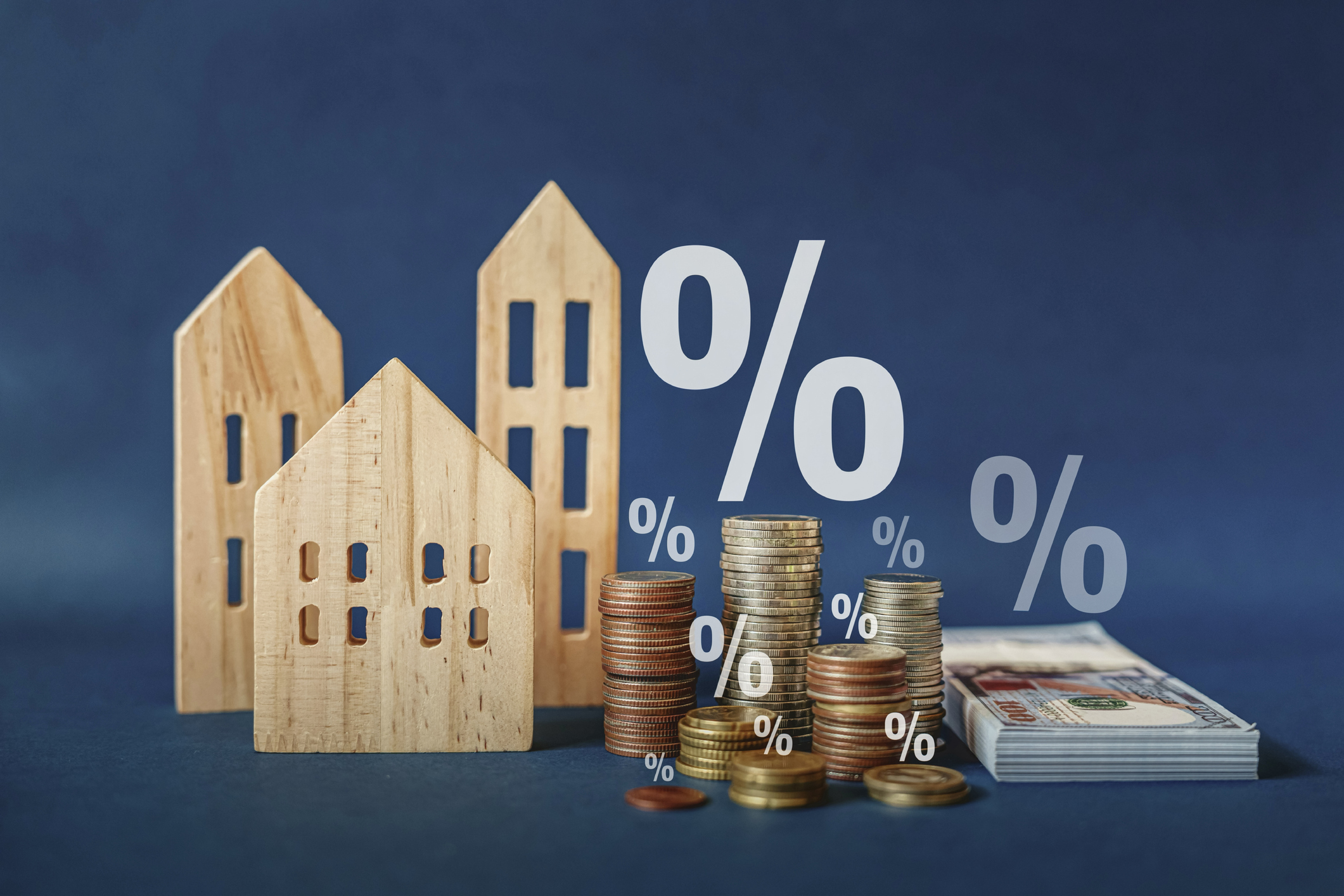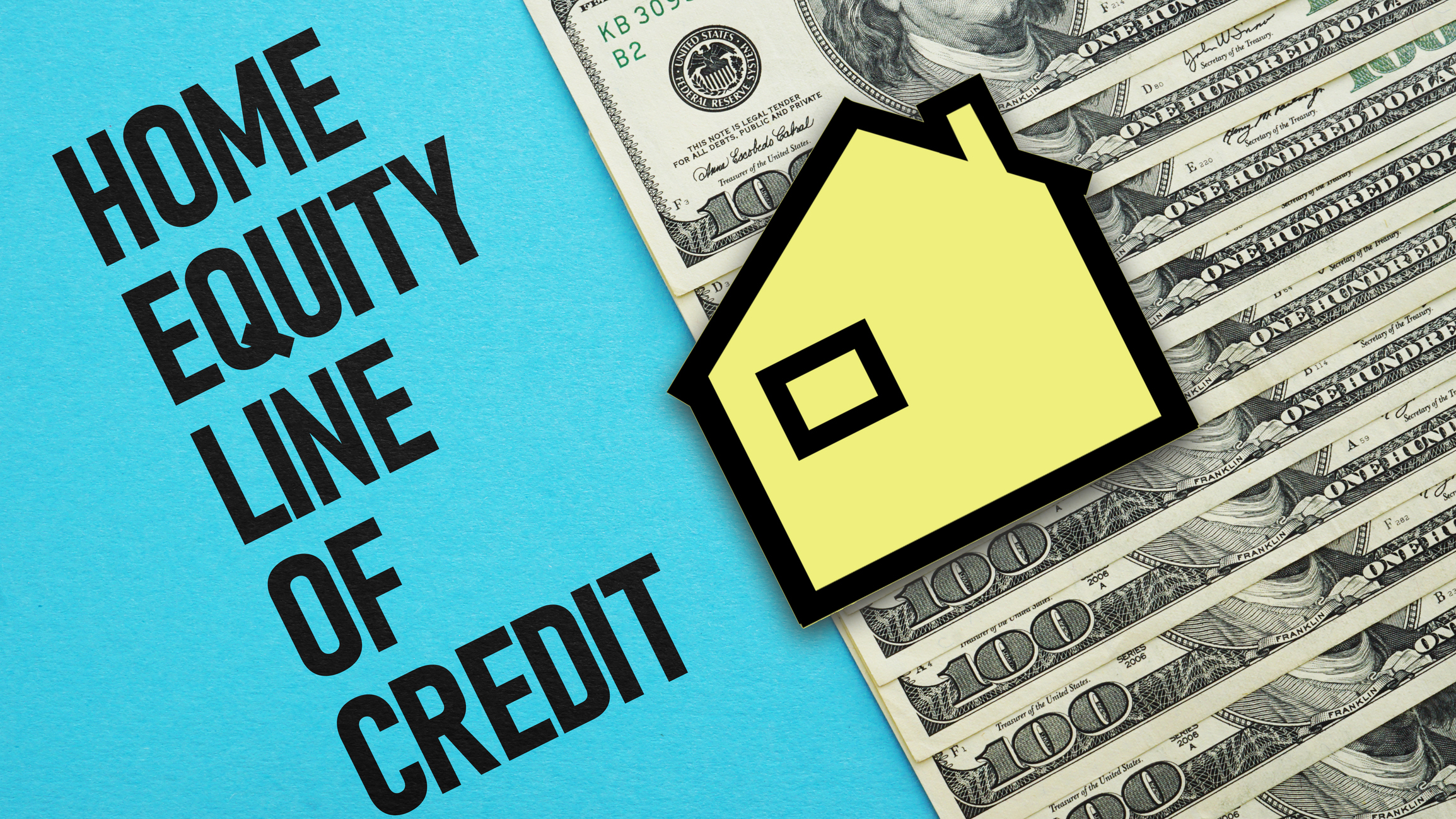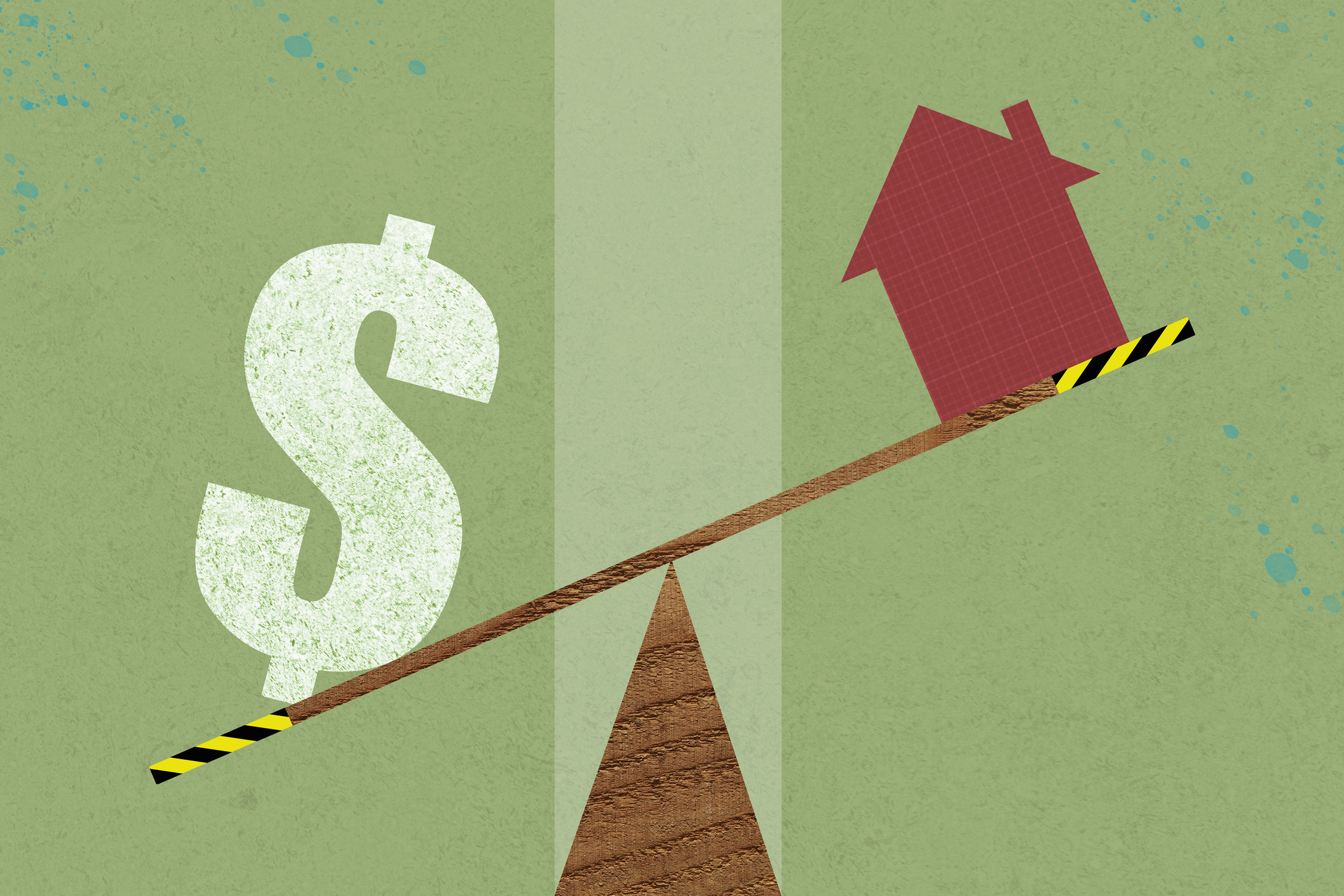Is 2025 a Good Year to Sell Your House?
Key trends in mortgage rates, home prices and buyer demand to help you determine if 2025 is the right year to sell your home.

Profit and prosper with the best of Kiplinger's advice on investing, taxes, retirement, personal finance and much more. Delivered daily. Enter your email in the box and click Sign Me Up.
You are now subscribed
Your newsletter sign-up was successful
Want to add more newsletters?

Delivered daily
Kiplinger Today
Profit and prosper with the best of Kiplinger's advice on investing, taxes, retirement, personal finance and much more delivered daily. Smart money moves start here.

Sent five days a week
Kiplinger A Step Ahead
Get practical help to make better financial decisions in your everyday life, from spending to savings on top deals.

Delivered daily
Kiplinger Closing Bell
Get today's biggest financial and investing headlines delivered to your inbox every day the U.S. stock market is open.

Sent twice a week
Kiplinger Adviser Intel
Financial pros across the country share best practices and fresh tactics to preserve and grow your wealth.

Delivered weekly
Kiplinger Tax Tips
Trim your federal and state tax bills with practical tax-planning and tax-cutting strategies.

Sent twice a week
Kiplinger Retirement Tips
Your twice-a-week guide to planning and enjoying a financially secure and richly rewarding retirement

Sent bimonthly.
Kiplinger Adviser Angle
Insights for advisers, wealth managers and other financial professionals.

Sent twice a week
Kiplinger Investing Weekly
Your twice-a-week roundup of promising stocks, funds, companies and industries you should consider, ones you should avoid, and why.

Sent weekly for six weeks
Kiplinger Invest for Retirement
Your step-by-step six-part series on how to invest for retirement, from devising a successful strategy to exactly which investments to choose.
The housing market has been a rollercoaster for both buyers and sellers. Throughout most of 2024 and the first half of 2025, mortgage rates hovered near 7%, limiting affordability and dampening demand.
In April, amid heightened economic tensions, rates rose to an average of 7.22% for a 30-year fixed mortgage and 6.47% for a 15-year loan, according to Freddie Mac. But more recently, borrowing costs have eased. As of September, the average 30-year rate has declined to 6.30%, with the 15-year fixed at 5.49%.
At its most recent September meeting, the Federal Reserve cut the federal funds rate by 25 basis points, bringing the target range to 4.0% – 4.25%. The move — the Fed’s first rate cut in some time — was described as a "risk-management" response to signs of labor market cooling, even as inflation remains a concern.
From just $107.88 $24.99 for Kiplinger Personal Finance
Become a smarter, better informed investor. Subscribe from just $107.88 $24.99, plus get up to 4 Special Issues

Sign up for Kiplinger’s Free Newsletters
Profit and prosper with the best of expert advice on investing, taxes, retirement, personal finance and more - straight to your e-mail.
Profit and prosper with the best of expert advice - straight to your e-mail.
While inventory levels have improved, they remain below what's needed for a balanced market. With economic uncertainty and the potential impact of President Trump's trade policies and tariffs, many homeowners are asking: Will 2025 be a good year to sell? Here's what to expect.
Mortgage rates: Gradual improvements expected
While the Fed doesn’t directly set mortgage rates, its policies indirectly impact lender borrowing costs, which in turn influence mortgage interest rates. Mortgage rates often adjust in anticipation, shaping the affordability landscape for homebuyers and those looking to refinance. This delicate balance between rate stability and market conditions continues to shape homebuying.
Interest rates remain higher than the ultra-low levels seen during the COVID-19 pandemic. After two weak employment reports, the Fed has signaled that one or two additional rate cuts are possible at its final meetings of 2025, provided inflation continues to ease.
For sellers, that outlook is encouraging. Even modest declines in mortgage rates could bring more buyers back into the market, fueling demand and helping listings move more quickly. Lower borrowing costs may also give first-time buyers the confidence to step in, potentially accelerating sales and supporting stronger market conditions.
Use the tool below to compare some of today's current mortgage offers:
Housing inventory levels: Still tight but improving
Existing-home sales were essentially flat in August, slipping just 0.2% from July, according to the National Association of Realtors (NAR). Regionally, sales rose in the Midwest and West but fell in the Northeast and South. Compared with a year ago, the Midwest and South posted gains, while the Northeast and West saw declines.
Home prices continued to climb, with the national median sales price reaching $413,000 in August — a 3.2% increase from the prior year. All four U.S. regions recorded annual price growth.
Inventory also showed signs of improvement, with 1.42 million homes available for sale, representing a 4.2-month supply at the current sales pace. While that marks progress, it remains below the 5- to 6-month supply typically needed for a balanced market.
On the new construction front, homebuilders had been growing more optimistic as reduced financing costs boosted confidence and raised hopes for increased housing supply in 2025. However, the Trump administration’s 25% tariffs on steel and aluminum imports have added uncertainty to new construction plans. Rising material costs could slow development, potentially limiting efforts to expand the housing supply.
For sellers, improved inventory may mean more competition but demand continues to outpace supply in many regions. Well-priced, well-maintained homes will likely attract strong interest, especially in high-demand areas with limited inventory.
However, sellers should be prepared for a real estate market that is gradually shifting toward balance, where buyers may have more options and negotiating power than in recent years.
Buyer demographics will shape the housing market in 2025

Buyer demographics play an important role in shaping housing demands. Millennials, now in their prime homebuying years, continue to dominate the market, often looking for larger homes to accommodate growing families.
Meanwhile, Gen Z is stepping into the market as first-time buyers, and they’re looking for affordable properties and locations that support the remote work lifestyle.
In addition, multigenerational living is on the rise, with families pooling resources to navigate high housing costs. This trend is driving demand for homes with extra space, such as properties with in-law suites.
For sellers, tailoring marketing strategies to highlight features that resonate with these groups can be an effective way to maximize interest and secure the best possible sale price.
Home prices: Slower growth expected in 2025
Existing-home sales were essentially unchanged in August, edging down just 0.2% from July to a seasonally adjusted annual rate of 4.0 million, according to NAR. Compared with a year ago, sales increased in the Midwest and South while declining in the Northeast and West.
For sellers, this means that while home values are still appreciating, the rapid price gains of recent years are slowing. Knowing how to price your home when selling and understanding local market conditions will be essential to attracting buyers in 2025.
Working with experienced real estate professionals can help sellers navigate these regional differences and position their homes competitively.
Political and economic factors in the housing market
The housing market is shaped by broad economic forces. Job growth, inflation trends, and the Federal Reserve’s monetary policy remain the key factors influencing whether conditions favor buyers or sellers. The Fed’s recent rate cut — and the potential for more — underscores how closely housing responds to shifts in monetary policy.
Politically, the Trump administration’s economic agenda is also starting to affect real estate. Efforts to boost affordable housing or relax zoning rules could help ease supply shortages, while infrastructure spending and business investment initiatives may create pockets of heightened demand in certain regions.
For both buyers and sellers, the takeaway is clear: housing markets don’t operate in isolation — they’re deeply connected to the broader economy and national policy decisions.
Should you sell your house in 2025?
Rising buyer demand could create great opportunities for sellers who’ve been waiting for the right time to list their homes for sale. While property values are expected to grow slowly, there’s still potential for gains.
Affordability challenges and economic uncertainty might still pose hurdles for both buyers and sellers. However, it’s essential to remember that the best time to sell your house is when you’re ready — both financially and emotionally.
REALTED CONTENT
Profit and prosper with the best of Kiplinger's advice on investing, taxes, retirement, personal finance and much more. Delivered daily. Enter your email in the box and click Sign Me Up.

Carla Ayers joined Kiplinger in 2024 as the eCommerce and Personal Finance Editor. Her professional background spans both commercial and residential real estate, enriching her writing with firsthand industry insights.
Carla has worked as a personal finance and real estate writer for Rocket Mortgage, Inman and other industry publications.
She is passionate about making complex real estate and financial topics accessible to all readers. Dedicated to transparency and clarity, her ultimate goal is to help her audience make informed and confident decisions in their financial pursuits.
-
 How Much It Costs to Host a Super Bowl Party in 2026
How Much It Costs to Host a Super Bowl Party in 2026Hosting a Super Bowl party in 2026 could cost you. Here's a breakdown of food, drink and entertainment costs — plus ways to save.
-
 3 Reasons to Use a 5-Year CD As You Approach Retirement
3 Reasons to Use a 5-Year CD As You Approach RetirementA five-year CD can help you reach other milestones as you approach retirement.
-
 Your Adult Kids Are Doing Fine. Is It Time To Spend Some of Their Inheritance?
Your Adult Kids Are Doing Fine. Is It Time To Spend Some of Their Inheritance?If your kids are successful, do they need an inheritance? Ask yourself these four questions before passing down another dollar.
-
 Is the Housing Market's 'Lock-In Effect' Finally Starting to Ease?
Is the Housing Market's 'Lock-In Effect' Finally Starting to Ease?As mortgage rates stabilize and fewer owners hold ultra-low loans, the lock-in effect may be losing its grip.
-
 What to Watch for When Refinancing Your Home Mortgage
What to Watch for When Refinancing Your Home MortgageA smart refinance can save you thousands, but only if you know how to avoid costly pitfalls, calculate true savings and choose the right loan for your goals.
-
 Builders Are Offering Big Mortgage Incentives — What Homebuyers Should Watch For
Builders Are Offering Big Mortgage Incentives — What Homebuyers Should Watch ForBuilder credits and below-market mortgage rates can ease affordability pressures, but the savings often come with trade-offs buyers should understand before signing.
-
 Trump Signals Plan to Ban Institutional Investors From Buying Single-Family Homes
Trump Signals Plan to Ban Institutional Investors From Buying Single-Family HomesThe president says the move could improve housing affordability. Here’s what the data show about investor ownership, recent buying trends and what it could mean for homebuyers.
-
 How Much Income You Really Need to Afford a $500,000 Home
How Much Income You Really Need to Afford a $500,000 HomeAs home prices increase, the income needed for a house is also climbing. We break down what you need to earn to afford a $500,000 home.
-
 How Much Would a $50,000 HELOC Cost Per Month?
How Much Would a $50,000 HELOC Cost Per Month?Thinking about tapping your home’s equity? Here’s what a $50,000 HELOC might cost you each month based on current rates.
-
 Should You Tap Your Home Equity Before 2026?
Should You Tap Your Home Equity Before 2026?As borrowing rates and tax law shifts converge, here's what homeowners need to know before pulling equity out of their home.
-
 What to Know About Portable Mortgages
What to Know About Portable MortgagesA closer look at how portable mortgages would work, who might benefit and why the concept is gaining attention amid high rates and limited supply.